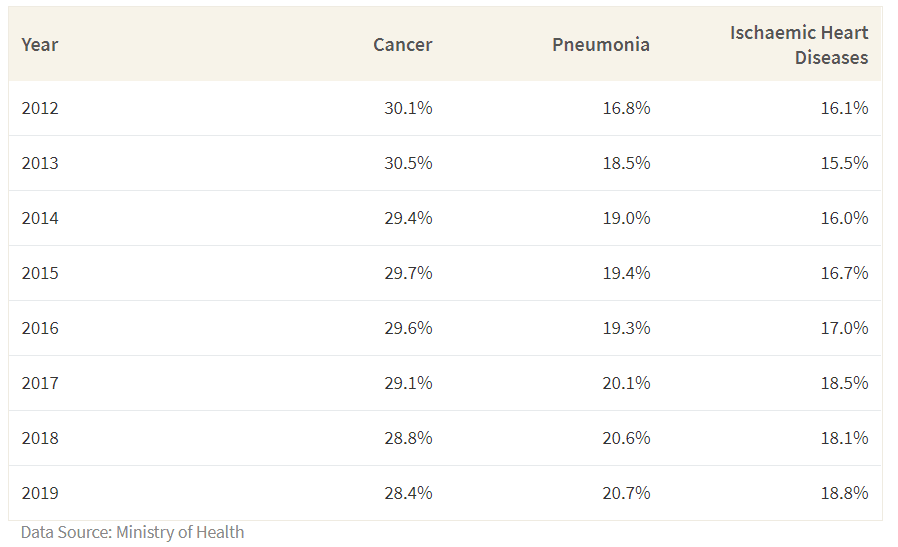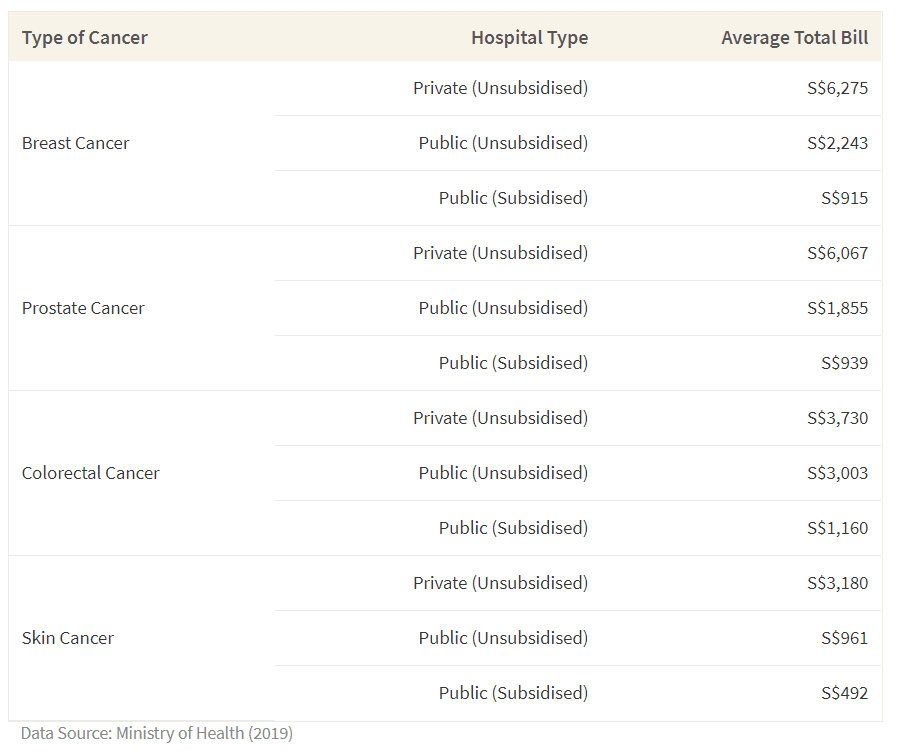Is It Worth It? Why Cancer Protection Can Provide Surprising Peace of Mind
Cancer is a scary thought. From the seemingly endless ways you can get cancer to the frustratingly high cost of treatment that may not always end up saving a life, it's unsurprising that cancer is one of the illnesses that people are most scared of contracting. However, there are ways to lessen the stress of a potential cancer diagnosis. From eating healthy and exercising to having a financial contingency plan, there are things you can do to reduce your risk of cancer and also reduce the cost should you become diagnosed. In this article, we'll be exploring cancer insurance, a relatively new concept in Singapore that can help many reduce the financial burden that comes with a cancer diagnosis.
Cancer Remains the #1 Killer in Singapore
Cancer accounts for nearly 30% of the deaths in Singapore and has continuously topped the list of being the nation's number 1 killer. This means that more people die from cancer than from heart attacks, pneumonia or even car accidents, with approximately 35 people getting diagnosed with cancer and 15 people dying from cancer in Singapore every day. However, while this sounds alarming, it's important to note that early detection is becoming increasingly possible and treatments are getting better. That said, this means that it is very important to start doing cancer screenings when necessary, especially if you are predisposed to cancer due to a family history of cancer. Catching it early means that your chances of survival will increase and can reduce the total cost of cancer treatment.
Principle Causes of Death (% of total deaths)

With a roughly 25% chance of developing cancer in your lifetime, it makes statistical sense to get covered for cancer. The payout cancer insurance provides will help cover treatment costs even if your cancer is caught early on. Furthermore, you may be able to use the payout from your insurance to pay for experimental treatment that isn't covered by your health insurance.
Healthcare Costs Are Continuing to Increase
While there are many forms of protection against paying high out of pocket expenses for medical bills, including MediShield, private health insurance, subsidies and Medisave, healthcare costs in Singapore continue to increase. In fact, healthcare costs have increased at by approximately 11% per year between 2012 and 2017. Cancer treatment is especially susceptible to high costs due to the length of treatment, cost of medication and surgeries. For instance, a radical prostatectomy (a sometimes necessary procedure for prostate cancer patients that involves removing the entire prostate) has an out-of-pocket cost ranging between S$2,370 and S$8,483. Other cancer surgeries can cost upwards of S$26,000 at a public hospital (before subsidies, schemes and insurance).
Average Cost of Surgery by Cancer Type

For people concerned with potential health care costs, cancer insurance may be a worthwhile purchase. This is because cancer insurance will be able to provide coverage for the remainder of the treatment that's not covered by insurance, subsidies and other government schemes.
Your Health Insurance May Not Fully Cover the True Cost of Living with Cancer
While your health insurance may cover cancer treatment, it won't cover the other aspects of living with a cancer diagnosis. Depending on the severity of treatment and the type of cancer, you may need to take time off work, which means a potential loss of salary. In addition to that, you will have bills that you'll need to pay, a family to take care of and other miscellaneous costs that come with cancer treatment (dietary changes, exercises, stress-relief and therapy, etc.).
These associated costs may not be covered by health insurance, which means you'll have to bear that cost on your own. However, this is another instance where cancer insurance may be beneficial. Since cancer insurance provides a payout upon a cancer diagnosis and is not limited to being used for treatment, you can use the funds to pay for a variety of the associated costs associated with a diagnosis.
Cancer Coverage Isn't a Requirement, But Could Be Useful
Cancer insurance definitely isn't mandatory, but the peace of mind could be well worth the cost for people whose main health concern is cancer. However, before purchasing a new insurance policy, you should make sure you have room in your budget as it is another financial expenditure on top of the many bills that you may already have. Furthermore, you should take note that if you are already experiencing certain symptoms of cancer or have had abnormal results for certain procedures like mammograms, pap smears, or prostate examination or tumour marker blood tests then you may have a harder time getting coverage or will be subject to higher premiums. That said, while cancer is indeed a scary thought, it's not all doom and gloom. Cancer treatments are becoming more successful, survival rates are improving and there are always ways reduce the financial strain.

